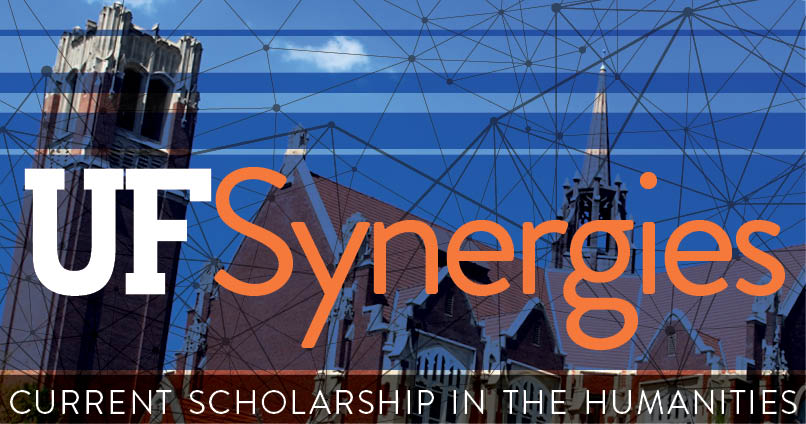
- This event has passed.
UF Synergies: Postcoloniality in the Spanish-Speaking World
September 23, 2019 @ 4:00 pm - 5:00 pm
Free
The UF Synergies series features informal talks by the Center for the Humanities and the Public Sphere’s Rothman Faculty Summer Fellows, Tedder Doctoral Fellows, and Rothman Doctoral Fellows. Fellows will speak for 20 minutes in length about their funded work, leaving ample time for questions and discussion. Talks are paired across disciplinary boundaries to stimulate discussions about threads and connections across research areas and allow for synergies of ideas to emerge in interdisciplinary conversations.
Arianne Boileau (Anthropology) “Life on the Edge: Documenting Indigenous Community Dynamics on the Maya/Spanish Frontier of Yucatán”
Arianne Boileau’s talk investigates resilience in indigenous socio-cultural systems on the Maya/Spanish frontier of Yucatán. It is generally considered, and documented to some extent, that Maya hierarchical structures remained relatively intact, even under Spanish oversight. Using zooarchaeology, I suggest that the Maya elite of Lamanai (Belize) may have retained, and perhaps enhanced, their political authority by pursuing traditional routes of faunal exploitation and taking advantage of new resources introduced by the Spanish. This would be consistent with the loose control exerted over Lamanai by the Spanish of Salamanca de Bacalar. Overall, this research refines our understanding of indigenous community dynamics along Spanish colonial frontiers.
Daniel Fernández (History) “A Benevolent Interpretation of National Laws: Transnational and National Efforts to Resettle Spanish Republican Refugees in Cuba, 1939-1945”
In 1939, more than 500,000 Spanish Republicans crossed into France after the destruction of Spain’s Second Republic. Subsequently, Spanish refugees attempted a second exodus from Europe to places like Cuba, where a rising tide of nativist decrees prevented their resettlement. However, as this paper reveals, a burgeoning transnational community of Spanish refugees, international aid organizations, and pro-Republican forces in Cuba helped many refugees circumvent legal barriers. By exploring these networks and the contributions of state and non-state actors, who prioritized humanitarianism and solidarity over nationalism, this talk exposes the role of transnational actors on the fluidity of borders in Cuba.